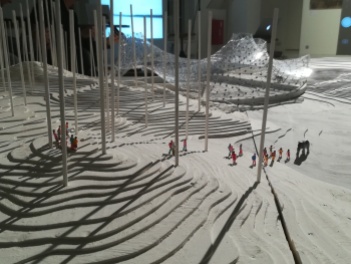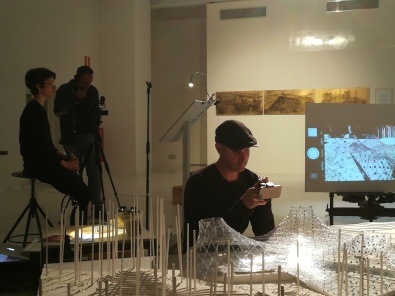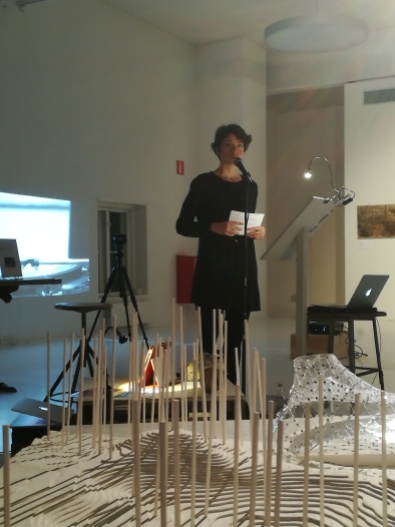Multimedia performance inhabiting the format of a performance lecture, conceived and performed by Daniel Peltz & Ioana Jucan
Sound design: Ioana Jucan
Performed at: Färgfabriken in Stockholm Sweden, as opening performance for Transpositions: From science to art (and back) (October 2017)
This performance grows out of two artistic research projects initiated and led by Daniel Peltz: Performing Labor (Reijmyre Sweden, June 2016-April 2017), in which Jucan played the role of the ethnographer-in-residence, and When we dig, things come up (Tom Price, Western Australia, 2013-15), in which Jucan played the role of the archaeologist of the afterlives of Peltz’s performance. A year after Peltz completed his work as artist-in-residence of the mining town Tom Price, Jucan followed into his footsteps and engaged in a performance of retracing his steps in Tom Price. Mining the archives of Peltz’s two projects, the performance reassembles the projects’ remains around “holes of history” theatrically transposed from the original sites of the projects into the Färgfabriken space. Recovering objects lost in a “holes in history”, Peltz and Jucan activate the archives of the two projects by ‘digging’ into the roles they performed in the projects and commissioning the audience to play different roles according to various performance protocols. What emerges is a replay through which a hole in history becomes a refuge.
The performance was performed as part of an exhibition containing separate pieces by Peltz and by Tina O’Connell/Neal White. These pieces engage in different practices of ‘data mining’ and transpositions of data (constituted in different ways) according to particular logics within a contemporary art context. Shifting scales and research frameworks through these practices, the pieces extend scientific methodologies under the heading of “artistic research,” while also asking: What kinds of knowledge and ways of knowing may “artistic research” create or enable and what would it mean to call these kinds of knowledge “scientific”?















